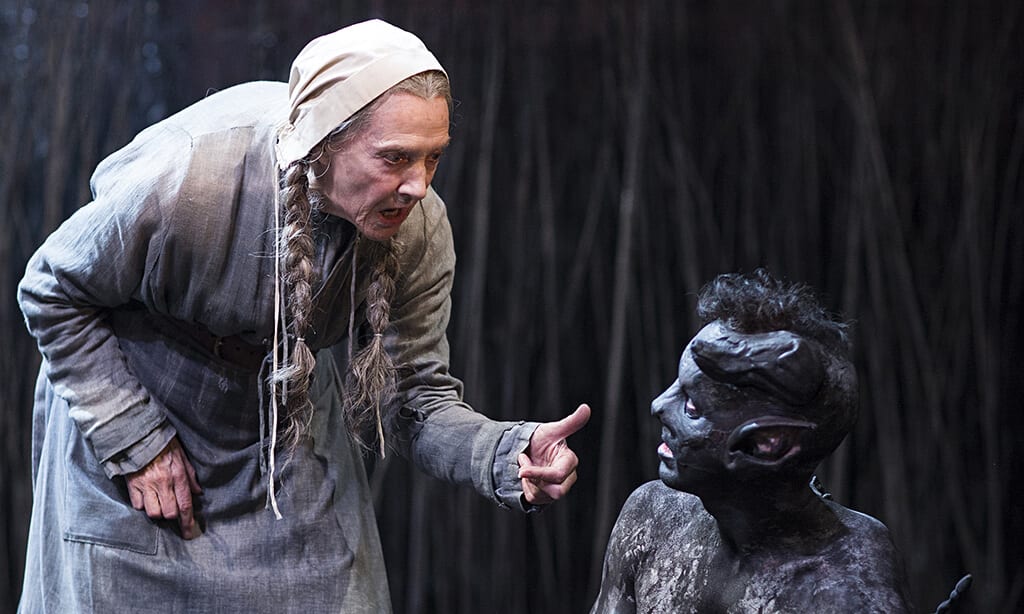The collaboration by Rowley, Dekker Ford and James Etcetera on The Witch of Edmonton has always seemed to lots of people to me amazing. How can 3+ men write a play that is so coherent, they cry? Well, how can 12+ men work on a screenplay and come up with some of the movies we all revere? Theatre like film is a collaborative effort once you get off the page and onto the stage, and the collaboration of Gregory Doran and his company of RSC actors at the Swan comes up trumps for me.
The troubling aspects of the play – the attitudes to women, and to elderly women in particular; the projection of fantasies, fear and bad decisions onto the machinations of external agencies such as witches; the undoubted desire of people always to find excuses and rarely to take responsibility; the corruption of the good by the bad; the misplacement of notions of goodness to the point of self-destructiveness – are acted out with exemplary energy and intelligence. The plot is presented with utmost clarity; the language with exemplary articulation. It is wonderful to see the seasoned, intelligent performance of Eileen Atkins as the Witch but don’t go expecting her to see a lot of her. Hers is a bravura performance, captivating and realistic, but the Witch of the title is a pivotal, not a central, character and some people in the audience were disappointed there was not more of her on the stage. On the other hand, she is full of energy; and she is, after all, working in a brilliantly conceived ensemble piece and contributing everything required of her.
The setting of the play by Niki Turner is evocative of the Edmonton Marshes of the early 17th century; and the costumes are of the period. The play is also directed with great wit and a fine understanding of the nuanced black humour in the text. Perhaps the shifts of mood happen at times so abruptly because of all the cooks that contributed to the brewing of this text, but I found that gave it an almost contemporary, offhand feel and that the ambiguity of the tone in some parts was provocative and dramatically cogent. Doran handles all this brilliantly. As well, Doran is somehow able to project onto our responses a double vision – that of today, when we see the Devil Dog at the centre of the action as a metaphor; and that of the period in which the play was first performed when people literally believed in witches, and especially female witches.
Jay Simpson is fascinating in his persona as Dog, the devil’s emissary. His make-up and his movement are unforgettable. Ian Bonar and Fare Castelow centre the play as Frank Thorney, the murderous bigamist, and Susan, the truly loving second bride; they are the central couple in the tale. I have nothing but praise for the rest of the cast too, the villagers of Edmonton, and if I single out Ian Redford’s Carter, Joseph Arkley’s Warbeck, Joe Bannister’s Somerton and Oliver Dench doubling as Hamluc and an Officer; it does not mean I was not impressed by Geoffrey Freshwater, Shvorne Marks, Michael Moreland, Christopher Middleton, David Rintoul or Anne Ratcliffe, for instance.
This is a very accomplished cast clarifying and making real entertainment out of a difficult play. The production resonates with strong Jungian echoes of how our mythologies of good and evil echo in ordinary lives, echoed not only four hundred years ago but for us still today. And it is a very fine evening of theatre.

